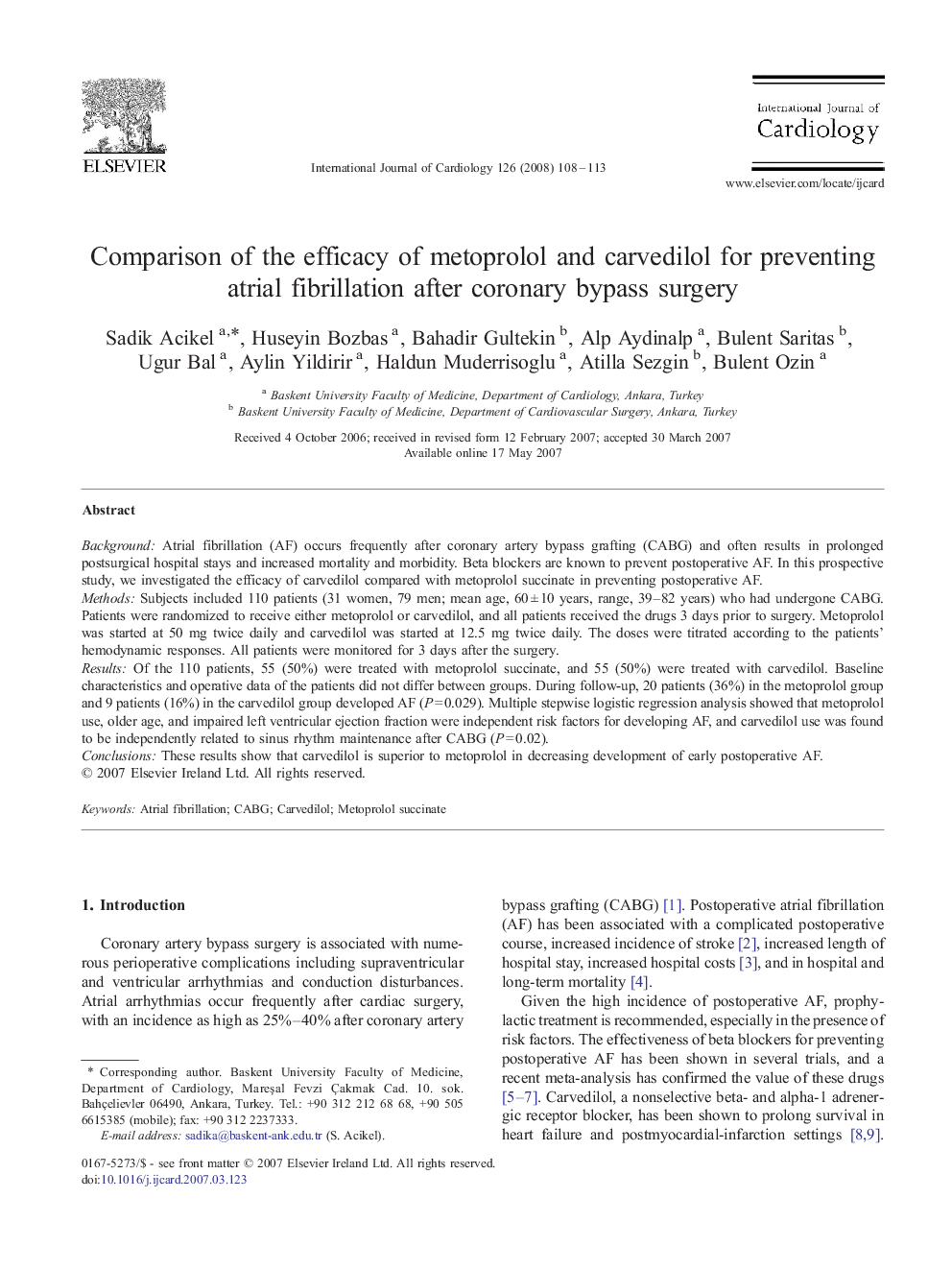| Article ID | Journal | Published Year | Pages | File Type |
|---|---|---|---|---|
| 2934358 | International Journal of Cardiology | 2008 | 6 Pages |
BackgroundAtrial fibrillation (AF) occurs frequently after coronary artery bypass grafting (CABG) and often results in prolonged postsurgical hospital stays and increased mortality and morbidity. Beta blockers are known to prevent postoperative AF. In this prospective study, we investigated the efficacy of carvedilol compared with metoprolol succinate in preventing postoperative AF.MethodsSubjects included 110 patients (31 women, 79 men; mean age, 60 ± 10 years, range, 39–82 years) who had undergone CABG. Patients were randomized to receive either metoprolol or carvedilol, and all patients received the drugs 3 days prior to surgery. Metoprolol was started at 50 mg twice daily and carvedilol was started at 12.5 mg twice daily. The doses were titrated according to the patients' hemodynamic responses. All patients were monitored for 3 days after the surgery.ResultsOf the 110 patients, 55 (50%) were treated with metoprolol succinate, and 55 (50%) were treated with carvedilol. Baseline characteristics and operative data of the patients did not differ between groups. During follow-up, 20 patients (36%) in the metoprolol group and 9 patients (16%) in the carvedilol group developed AF (P = 0.029). Multiple stepwise logistic regression analysis showed that metoprolol use, older age, and impaired left ventricular ejection fraction were independent risk factors for developing AF, and carvedilol use was found to be independently related to sinus rhythm maintenance after CABG (P = 0.02).ConclusionsThese results show that carvedilol is superior to metoprolol in decreasing development of early postoperative AF.
